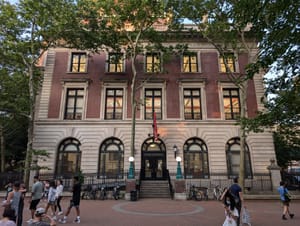From the Preface to Books, buildings and social engineering:
We seek to rescue the historic public library building from a perspective that in the past has all too easily denigrated it. The mass construction – for that is what it eventually became – of early public library buildings is to be celebrated as a successful exercise in social engineering, an unprecedented effort by a public-sphere movement to persuade citizens, in a consensual way, of the importance of knowledge in an increasingly open and modernising society (we have deliberately used the term ‘social engineering’ as opposed to the narrower and misleading term ‘social control’). More precisely, the provision of what amounted to over one thousand library buildings in the period 1850-1939 was an exercise in what Karl Popper called ‘piecemeal social engineering’ – social engineering that was incremental and continually amended in the light of experience and new knoweldge, a scientific approach to planning social change, in this instance via the free provision of books, information, education and knowledge, that reflected the essence of the public library as an institution of progress and scientific inquiry. [Black, A., Pepper, S., & Bagshaw, K. (2009). Books, buildings and social engineering: Early public libraries in Britain from past to present. Farnham, England: Ashgate Pub.]



